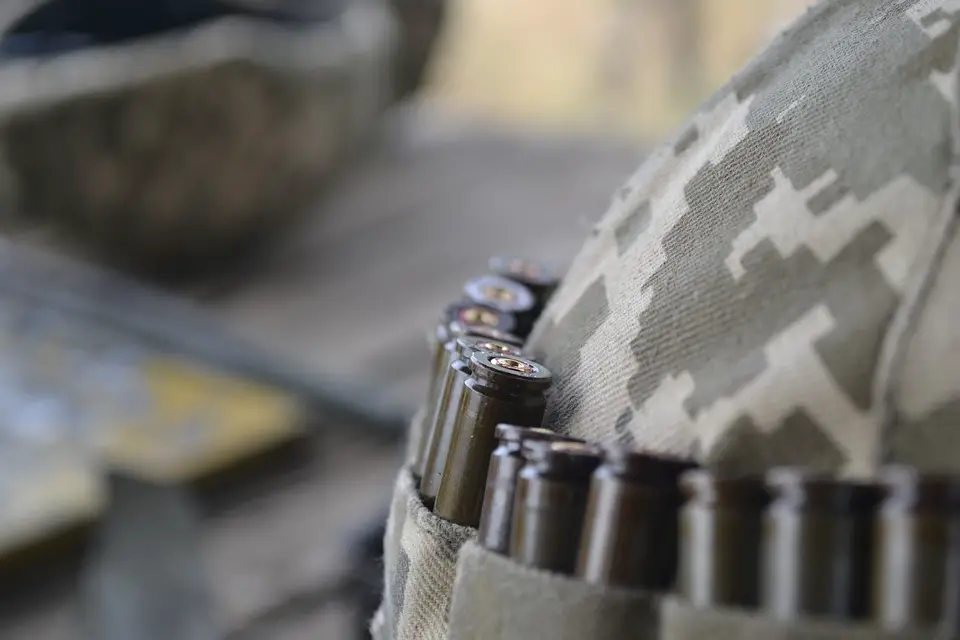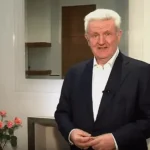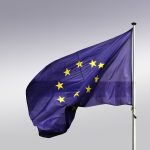The monthly wage earned by Plenkovic, his ministers and parliamentarians is set to go up
Much to the delight of every average Joe living and working in Croatia and struggling to make ends meet, Plenkovic and co are set to get a wage increase.
You’ll probably remember that last month, the government and the trade unions finally came to an agreement on a basic salary increase, meaning that the monthly salary will also increase for Plenkovic, Milanovic, Jandrokovic, government ministers and members of parliament, that is, for all officials. However, with the passing of this particular law, the President of the Constitutional Court will be taking home the highest official salary, and not President Zoran Milanovic.
With the amendments to the law that the government sent to the parliament recently, for which it is requesting adoption under an urgent procedure, the base rate for officials will be the same as that applied to civil servants, so all future increases, including this one now, will automatically apply to politicians as well.
One Ukrainian minister thanks Croatia for allowing Ukrainian soldiers to come and be trained to fight the Russians in Croatia
”Thanks, Plenkovic!” tweets the minister…
You might recall the likes of President Zoran Milanovic among others being staunchly against the idea of training Ukrainian soldiers to fight against their invaders here in Croatia. Milanovic believed that Croatia’s showcasing of unwavering support for Ukraine and providing help and safety for refugees was enough, and that anything else would be provocation of Putin and inviting the war to this country’s doorstep. Many agreed with him. Many more found themselves surprised at agreeing with him.
Still, it seems that his case for disapproval fell on deaf ears as the Ukrainian Defence Minister, Oleksij Reznikov, thanked Croatian Prime Minister Andrej Plenkovi and Defense Minister Marij Banozic on Twitter after the government sent the decision on Croatia’s participation in the military aid mission to Ukraine for approval by the parliament yesterday.
“The government of the Republic of Croatia approved the decision to train the Ukrainian army in Croatia. A modern, well-trained army with powerful partners will definitely defeat a pack of Russian murderers, robbers and rapists. Thank you Andrej Plenkovic and Mario Banozic for their support!” Reznikov tweeted.
Croatia’s participation in the military aid mission to Ukraine includes the training of Ukrainian soldiers in Croatia, which isn’t something many people are all too thrilled about. Banozic, however, seems to have allowed all logical opposition to this fly right over his head. ”What are they against? Are they against saving lives?” he asked.
Zoran Milanovic claims that America is fighting a war against Russia… through Ukraine
If you’re a follower of Croatian politics in any deeper capacity, you’ll know that President Milanovic often comes out with some rather unusual things. He also never misses an opportunity to spit on HDZ, which for many makes him a popular character in at least one aspect. For others, his distasteful remarks cross the line a bit too often, and for others, well, they can’t quite make head nor tail of him. He has recently come out with something quite strange.
The Day of the City of Zadar took place recently, which is celebrated at a formal session of the City Council, and Milanovic was there. As expected, he referred to the government’s decision to train Ukrainian soldiers in Croatia which I mentioned above, and which he was firmly against. “This is personal terror and harassment by Plenkovic, it’s just his desire to push some of his ideas,” said Milanovic, as RTL reported at the time.
President Milanovic also said that he knows what is written in the Croatian Constitution because ”he wrote it”. He was referring to the statement of the government at that session that the training of Ukrainian soldiers is based on the Constitution and on the laws and international agreements according to which Ukraine is an allied country.
”Therefore,” Milanovic added: “Ukraine, to its credit, is not an ally.” “The Croatian Parliament is not responsible for making any decisions on the training of foreign soldiers in Croatia,” he said. He called things as they were set up by the government a “Udbas sabotage”, which, if you know who the ”Udbasi” (the Yugoslav secret service) were and what they got up to, you’ll realise is quite the statement.
“Now it will be seen who’s Russia and who’s for Ukraine. I’m not for anyone. I’m for Croatia,” Milanovic said.
“There’s a war going on there between America and Russia. Between Russia and Ukraine, I’m on the side of Ukraine, of course. But it’s a war between America and Russia,” he said. “We have to state that the Americans are waging a war against Russia through Ukrainian youths, we have to say that. When it comes to decisions that have a security and defense character, you have to consult with the president, and I say to the members of parliament: ”Don’t be intimidated,” he said.
New measures against inflation could come to be, and all hands are on deck for post-earthquake reconstruction (for the earthquake that occurred two years ago)
Plenkovic recently pointed out that the proposed state budget for next year will provide funds for the growth of both wages and pensions, increased funds for veterans and the army, and he also announced possible new measures to mitigate the impact of inflation, with the message that “there’s power and space for that”.
“We have the space and strength to do that, if there’s a need, and considering the circumstances, our measures will be precise and comprehensive, and as we’ve done so far, we’ll solve it and you’ll be satisfied with what we do,” said Plenkovic in response to Branko Grcic (SDP ) when asked what will happen at the end of March next year, when all previous measures are due to expire.
”We’ll also reduce excise duties on heating oil and thereby provide additional assistance to people,” announced the Prime Minister during the parliamentary debate on the 2023 budget, adding that ”the number of people at risk of poverty is continuously falling in Croatia and that figure is smaller than when we assumed responsibility.”
In his answers to the deputies, Plenković pointed out that the fight against corruption continues, that it is strong and brings results.
Regarding the post-earthquake reconstruction for the earthquakes which struck Zagreb in March 2020 and the Banovina area in December of that same year, which he was also asked about, Plenkovic said that the government is providing a lot of aid and that the reconstruction of houses is intensifying, that all departments are working on reconstruction and are in charge of spending the available funds.
Austria is now all for Croatia joining Schengen, or is it?
You may have read (or heard) about Austria taking a stance against Croatia joining the Schengen zone in January 2023, with talk of the country potentially going as far as to block entry. Now it seems that the tide has turned, or has it? Memories are short when it comes to Croatian politics.
Plenkovic recently received the Federal Chancellor of the Republic of Austria, Karl Nehammer, at Banski dvori. This is Nehammer’s first official visit to Croatia as chancellor.
“In the last thirty years or so, relations with Austria have been among the most extensive of the numerous countries with which Croatia cooperates since it was internationally recognised. Since the 1990s, Austria has been the second biggest investor in Croatia. This year, Croatia was visited by one and a half million Austrian tourists,” said Plenkovic at the beginning of the press conference.
“Today we also discussed the most important topic ahead of this visit, which is the final two weeks before the decision on Croatian membership of the Schengen area. This was an opportunity to once again explain to the chancellor what Croatia has done from 2016 until today,” Plenkovic said.
“We’re currently discussing the expansion of Schengen, and we can see that Austria in particular has insufficient protection of its external borders. At the same time, we have a reduction in border protection within the EU itself, in our opinion it can’t continue like that, so some measures will have to be taken,” he said.
“When we talk about Schengen’s expansion, and at the same time we criticise the plan that the European Commission should present with regard to these problems that we’ve presented, it is important to say that this doesn’t apply to Croatia. Special votes will be cast for Croatia, as they will for both Bulgaria and Romania. We’ll support Croatia’s accession to the Schengen area, but we’re going to be critical of the efforts of Bulgaria and Romania,” added the Austrian chancellor.
The Austrian chancellor also said that it is necessary to change the system and strengthen the EU’s external borders in order to make free movement within Schengen possible.
It’s worth noting that Austrian Minister of the Interior, Gerhard Karner, caused great concern reently after he said that he was against the expansion of the Schengen area to include Croatia, Bulgaria and Romania. Over the past few days, he has repeatedly said that he is against any Schengen expansion, which he said is something that simply isn’t working, which can be seen from the increased number of asylum seekers arriving in Austria. That country registered the entry of around 100,000 migrants this year alone, of which 75,000 were not previously registered in any EU country at all.
Nehammer warned that his minister wanted to signal that “Schengen is clearly not working and that new measures are needed.” The Council for Justice and Internal Affairs meets on December the 8th and 9th, when it will make the final decision on Croatia’s entry into the Schengen area. Croatia’s accession was previously supported by the European Commission and the European Parliament, so all fingers (and likely toes) are crossed.
For more on Croatian politics, make sure to follow our dedicated section and keep your eyes peeled for our Week in Croatian Politics articles which are published every Friday.











